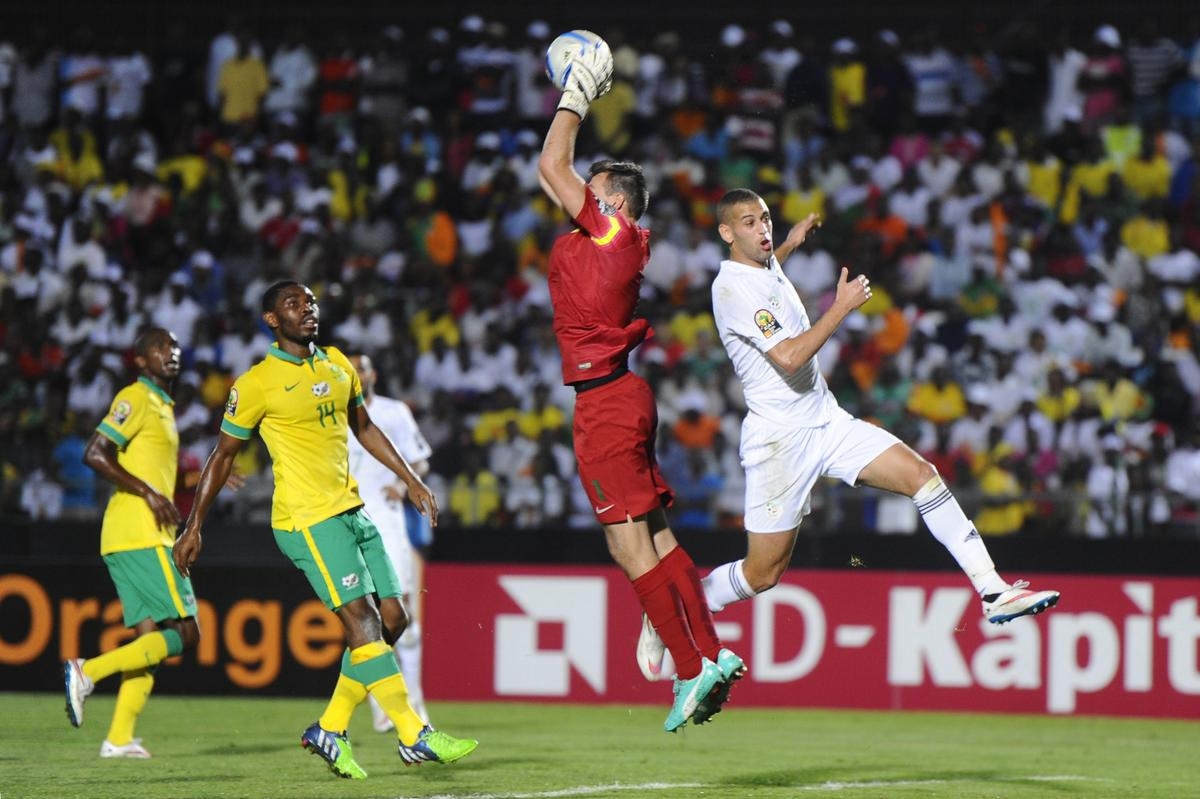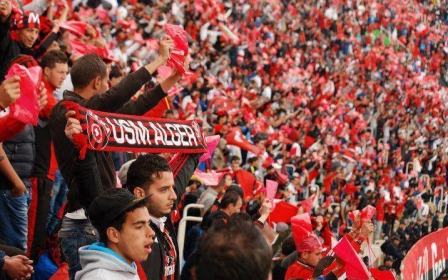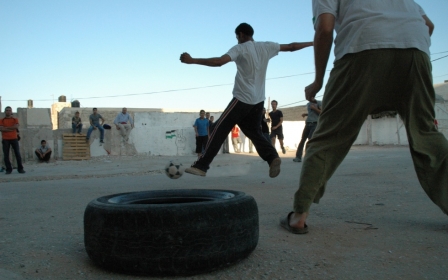Tunisia, Algeria go for football glory at Africa Cup of Nations

While 10 Middle Eastern countries left for Australia looking to secure glory at the Asian Cup, only Tunisia and Algeria are taking part in the Africa Cup of Nations (AFCON), one of the most prestigious and fierce competitions in world football.
The Algerians secured a vital 3-1 victory over South Africa, but Tunisia could only labour to a 1-1 draw against Cape Verde in their opening games of the competition, held in Equatorial Guinea.
Despite being the region's only representatives, both sides will be hoping to emulate perennial winners Egypt and ensure that the trophy returns to North Africa, after Zambia and Nigeria won it all in 2012 and 2013, respectively.
Qualification was disappointing for teams from the Middle East-North Africa (MENA) region, as Egypt, Libya, Sudan and Mauritania failed to make it to the tournament.
While Mauritania never harboured realistic expectations of reaching the Cup - lacking any meaningful footballing infrastructure or the financial clout to build a solid platform for qualification - Egypt, Libya and Sudan may look to internal strife as a factor in their failure to qualify.
Libya has been torn apart by civil war following the ouster of former leader Muammar Gaddafi, and the country's football team has certainly felt the strain. Despite reaching the AFCON in 2012, the team's results have suffered greatly since.
Meanwhile, Sudan - once a powerful force in African football - has faltered after years of sanctions and internal unrest, leading its footballing scene to fail to develop.
Perhaps most surprising is the absence of Egypt, the most successful nation in AFCON history with seven titles. A tough qualifying group certainly did them no favours, but football has arguably reflected life in recent years in Egypt; split and troubled, with controversy never too far away. Stadium violence has marred the country’s football, often with tragic consequences.
Morocco’s last minute disqualification
This disappointment is compounded further by the disqualification of original tournament hosts, Morocco.
Morocco was well into its preparations for hosting the Cup, with stadia and infrastructure being readied for the curtain-raiser. However, the outbreak of the ebola virus in West Africa saw the Moroccan Football Association press for a postponement, a decision that the Confederation of African Football (CAF) swiftly refused.
Despite numerous pleas from the CAF to go ahead with the tournament as planned, Morocco refused to host a tournament that it perceived could post a large-scale threat to its population.
Ultimately, tournament organisers moved AFCON to Equatorial Guinea, and with the move came the disqualification of a Moroccan side who were tipped to be strong contenders in a home tournament.
Tunisia looking to taste success
Tunisia has been given a relatively manageable draw and will be hoping to at least make the semi-finals, perhaps even going a step further.
Drawn against Zambia, Democratic Republic of Congo and Cape Verde in Group B, the young Tunisian squad is expected to get through to the next round. A disappointing opening day 1-1 draw against the Cape Verdeans was not the start the Eagles had in mind, but they will have ample opportunity to turn their fortunes around.
Up next is Zambia in Ebebyin, a match the Tunisians cannot afford to lose. They go to Bata to wrap up the group stages with a fixture against the Congolese, hoping to be in a favourable position.
Should the Tunisians make it through, they will most likely face either Gabon or the host nation in the quarter-finals. Whilst neither team will be an easy opponent for the Eagles, Tunisia should be able to go into that match with confidence. For now though, the priority is a positive result against Zambia on 22 January.
Tunisia earned two silver medals since 1962, while its sole tournament victory came back in 2004.
Having failed to make any impact in the five tournaments since, the team will be desperate to make its mark in Equatorial Guinea, especially after failing to make it out of the group stages during their last showing.
Can Algeria build on its World Cup showing?
Meanwhile, Algeria have been given a challenging draw in Group C, coming up against continental powerhouses, Ghana and Senegal, as well as a competitive South Africa squad.
The Desert Foxes claimed a crucial opening day 3-1 win against South Africa, but the victory was hard-fought, and the players salvaged the win with little time remaining on the clock.
Algeria will face Ghana in Mongomo on 23 January, before rounding off the group stage with a tough fixture against Senegal on 27 January.
The Algerians are arguably the strongest force in football across the MENA region, and they will be looking to showcase their talent and potential with a successful campaign.
As with Tunisia, Algeria has tasted victory at the AFCON only once in its history, in 1990.
With plenty of high-level European club experience on the squad, Algeria is well-placed to finally lift the trophy, though the team will certainly need luck on its side along the way.
The Algerian squad is largely unchanged from the one that captured the imagination of millions worldwide at the 2014 FIFA World Cup.
The attacking brand of football the Desert Foxes displayed in Brazil won them plenty of fans, having made a positive impact on the tournament, and only being knocked out by eventual champions Germany. After returning home as heroes, they will be looking to cement their status as one of the most popular teams in the nation’s history.
Interestingly, the Ghanaian team that will line-up against Algeria has a link to the Middle East, in the form of Israeli coach Avram Grant. The former Chelsea boss has led the Black Stars since November 2014, and his Ghanaian side will offer stern opposition to Algeria, in what promises to be an exciting group-stage clash.
Middle East Eye propose une couverture et une analyse indépendantes et incomparables du Moyen-Orient, de l’Afrique du Nord et d’autres régions du monde. Pour en savoir plus sur la reprise de ce contenu et les frais qui s’appliquent, veuillez remplir ce formulaire [en anglais]. Pour en savoir plus sur MEE, cliquez ici [en anglais].







